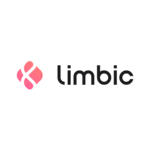Gender and ethnically diverse groups saw dramatic increases in referrals, with non-binary patients and ethnic minority groups signing up at a 179% and 29% increase, respectively, thanks to the use of an AI-enabled chatbot.
NEW YORK & LONDON–(BUSINESS WIRE)–New research conducted with 129,400 patients across 28 separate NHS Talking Therapies services across England offers hope by demonstrating that Artificial Intelligence (AI) can increase access for all. Researchers saw increased access to mental health support amongst non-binary (179% increase) and ethnic minority individuals (29% increase) in the cohort using Limbic’s AI tool. This is a profound response to research earlier this year showing that UK mental healthcare services are not meeting the needs of people from ethnically diverse groups, including within NHS’ Talking Therapies services, a problem existing in the US, as well.
The study, “Closing the accessibility gap to mental health treatment with a personalized self-referral chatbot,” was published by Nature Medicine.
While traditional self-referral methods resulted in a 6% baseline increase during the study, the use of an AI self-referral assistant, called Limbic Access, provided an additional 9% boost to provide a 15% overall increase in referrals during the same period. This shows that Limbic Access helped directly increase access to services and address a lack of perceived need for treatment, negative attitudes, stigma around mental health and structural barriers blocking passage.
Of those who provided text feedback about their experience with Limbic Access, 89% were classified as positive, 7% as neutral, and just 4% as negative. Researchers found that across gender identity and ethnic groups, each group tended to have specific needs and focuses as part of their mental health journey.
“These findings indicate that AI-enabled chatbots, typically free of judgment and pre-conceived ideas, play a vital role in making mental health services more accessible and inclusive, allowing for the clinicians to focus on their humane touch,” said Limbic CEO and paper co-author Ross Harper. “This has significant implications for healthcare policy, clinical practice, and technology development in mental healthcare.”
“AI is becoming an invaluable addition to mental healthcare,” said Dr. P. Murali Doraiswamy, Professor of Psychiatry and Medicine at Duke University. “Companies like Limbic are leading the way by demonstrating clinical evidence gained from working with some of the largest healthcare systems in the world.”
Patients have told us that “Fast replies made me feel listened to and got me a date and time to speak to someone,” speaking to the importance of getting optimal treatment as soon as possible. Another patient shared, “It’s been good to be able to take my time over answers and not feel under pressure to answer quickly.”
The use of Limbic Access by NHS Talking Therapies to improve patient access across racial lines supports the work of NHS’ race equality framework for both patients and carers.
About Limbic
Limbic is making the highest quality mental healthcare available to everyone, everywhere, regardless of socioeconomic factors. Limbic AI is the world’s first AI mental health chatbot to have achieved Class IIa UK medical device status and has helped over 250,000 NHS patients enter care, releasing over 40,000 clinical hours for NHS services and saving nearly 5 to 10 times the economic cost per additional user recovery.
Contacts



